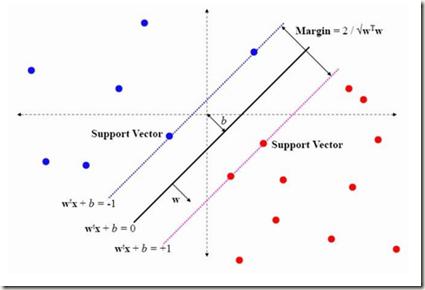
Support vector machines (SVMs) are popular learning algorithms to deal with binary classification problems. They traditionally assume equal misclassification costs for each class; however, real-world problems may have an uneven class distribution. This article introduces EBCS-SVM: evolutionary bilevel cost-sensitive SVMs. EBCS-SVM handles imbalanced classification problems by simultaneously learning the support vectors and optimizing the SVM hyperparameters, which comprise the kernel parameter and misclassification costs. The resulting optimization problem is a bilevel problem, where the lower level determines the support vectors and the upper level the hyperparameters. This optimization problem is solved using an evolutionary algorithm (EA) at the upper level and sequential minimal optimization (SMO) at the lower level. These two methods work in a nested fashion, that is, the optimal support vectors help guide the search of the hyperparameters, and the lower level is initialized based on previous successful solutions. The proposed method is assessed using 70 datasets of imbalanced classification and compared with several state-of-the-art methods. The experimental results, supported by a Bayesian test, provided evidence of the effectiveness of EBCS-SVM when working with highly imbalanced datasets.
翻译:支持矢量机(SVM)是处理二进制分类问题的流行学习算法(SVM),它们传统上对每类都承担同等的分类错误成本;然而,现实世界问题可能会有不均衡的等级分布。本条款引入 EBSS-SVM:进化双级成本敏感SVMs。 EBSS-SVM通过同时学习支持矢量和优化包含内核参数和分类成本错误的SVM超参数处理不平衡的分类问题。由此产生的优化问题是一个双级问题,低层决定了支持矢量和超参数的上层。这一优化问题通过上层的进化算法(EA)和下层的顺序最小优化(SMO)来解决。这两种方法以嵌套式的方式工作,即最佳支持矢量器有助于指导超标量计的搜索,而较低层则根据以往的成功解决方案初始化。在评估拟议方法时,使用70个不平衡分类数据集,并与若干状态的超标法方法相比较。在低层一级使用进化算法的进化算法方法时,使用进化法的进化法结果,在BS测试中以高度的平衡提供EBIS数据测试时,以高度数据测试结果支持。

